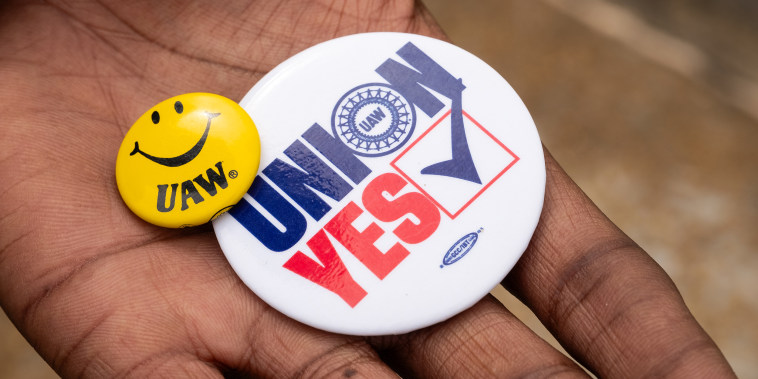In a groundbreaking development, Volkswagen workers in Tennessee have voted to join the United Auto Workers (UAW) in a historic win for the union. This decision marks a significant turning point in the relationship between the automaker and its workforce, with far-reaching implications for the future of labor relations in the United States.
The vote, which took place after several unsuccessful attempts by the UAW to unionize the Tennessee plant, signals a growing desire among workers for better wages, benefits, and working conditions. The victory for the union comes after a hard-fought campaign that saw both sides passionately advocating for their positions.
One of the key factors that likely influenced the workers’ decision to join the UAW was the promise of increased job security and better representation in negotiations with the company. By aligning themselves with a powerful union like the UAW, workers can leverage collective bargaining power to address their grievances and secure more favorable terms in their contracts.
The successful unionization of the Tennessee plant could have ripple effects across the entire auto industry, setting a precedent for other workers to follow suit and demand better treatment from their employers. As the UAW gains a foothold in another major auto manufacturer, it strengthens its position as a formidable player in the labor movement, capable of mobilizing and advocating for the interests of workers nationwide.
Furthermore, the decision by Volkswagen workers to join the UAW underscores a broader shift in American attitudes towards organized labor. With income inequality on the rise and workers facing mounting pressures in an increasingly globalized economy, more and more employees are turning to unions as a means to secure their rights and improve their working conditions.
The Volkswagen-UAW victory serves as a timely reminder of the power of collective action and the importance of solidarity among workers in the face of corporate interests. By banding together and speaking with one voice, employees can challenge the status quo, hold employers accountable, and shape a more equitable and just future for themselves and future generations of workers.



























